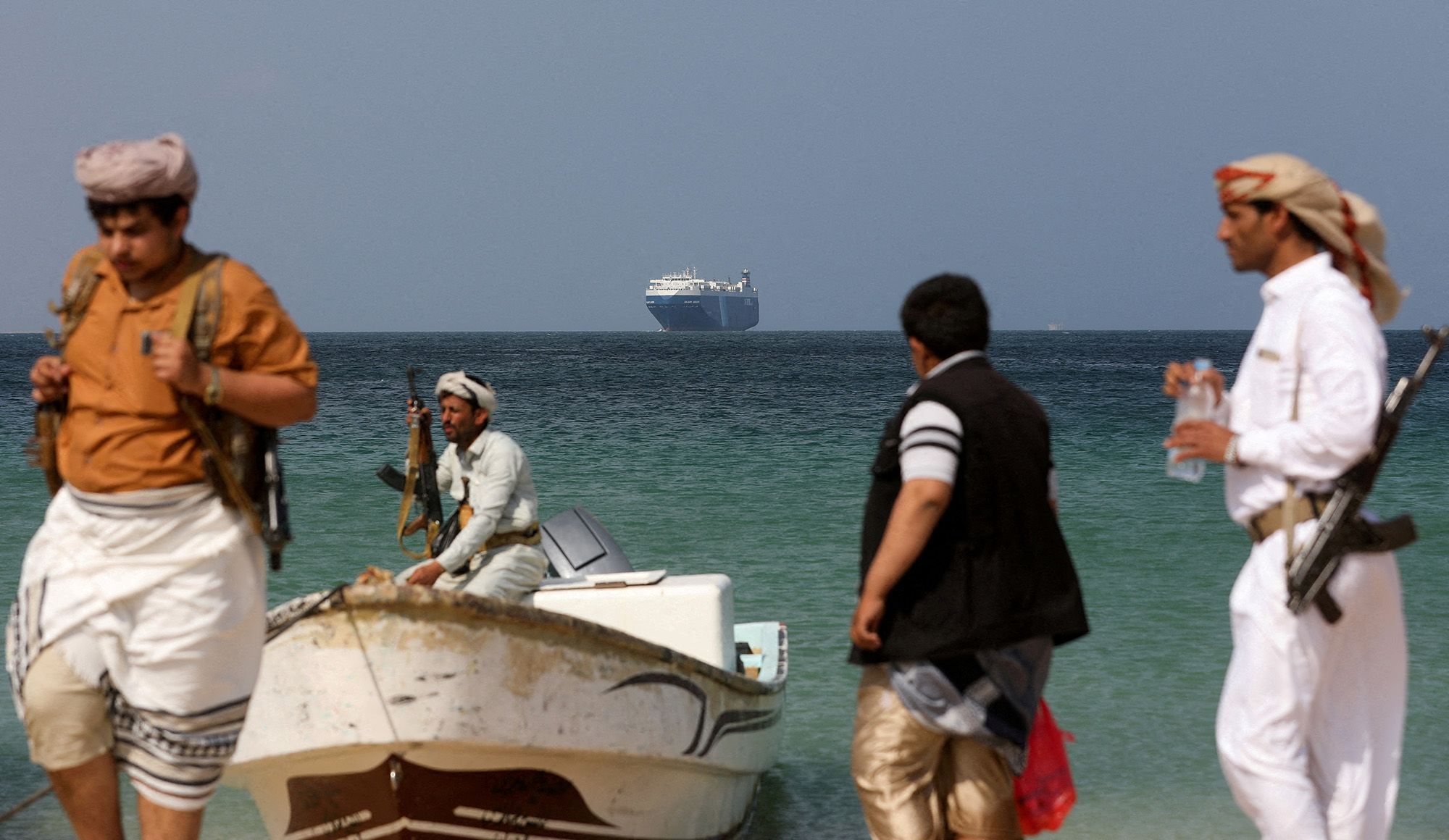More than 20 countries have agreed to take part in a new US-led coalition to safeguard commercial traffic in the Red Sea from attacks by Houthis, the Pentagon said last week.
The Houthis’ actions are mainly concentrated around the Bab el-Mandeb strait from the Red Sea to the Gulf of Aden along the Yemeni coast – a unique energy corridor connecting to Egypt’s Suez Canal linking Europe and Asia.
The 193km (120-mile) canal, one of the world’s busiest waterways and the shortest shipping route between Europe and Asia, accounts for 12 per cent of global trade, including 30 per cent of all container movement, according to Egypt’s State Information Service.
The Operation Prosperity Guardian coalition, announced by Washington on December 18, includes the US, Britain, Canada, France, Italy, the Netherlands, Norway, and Spain and Seychelles, with Bahrain the only Middle Eastern nation to have joined so far.
China has been invited to take part in protecting the Red Sea, with the US State Department saying Washington would “welcome a constructive role played by Beijing” to prevent Houthi attacks.
While Beijing did not directly respond to the invitation, foreign ministry spokesman Wang Wenbin said that China “believes relevant parties, especially major countries with influence, need to play a constructive and responsible role in keeping the shipping lanes safe in the Red Sea”.
Paul Nantulya, a research associate at the Africa Centre for Strategic Studies at the US National Defence University, said having Chinese forces join a US-led mission risked implying that China would go along with the US position on Gaza.
“The issue is not one of capacity but one of political will … Becoming part of a US military plan will be viewed in the Chinese political and military establishments as ‘capitulation to US interests’ and ‘humiliation of China’,” he said, citing Beijing’s opposition to Washington’s stance on the Gaza crisis, marked by steadfast US support for Israel.
“Such a move would send mixed signals to the Global South, which is on the same side as China on the Gaza crisis as reflected in numerous UN General Assembly resolutions.”
China is not the only power concerned about an anti-Houthi patrol affecting its perceived stance on Gaza. US ally Saudi Arabia, which backs the Yemeni government and is opposed to the Houthi insurgents, is also absent from the US-led patrol, while others in the region like Egypt and the United Arab Emirates have maintained silence on the high seas attacks.
Several major Western countries that have joined the US mission – such as Canada, the Netherlands and Norway – who have a strong pro-Palestine stance, said they would not send ships but only military personnel for consultancy.
Song Zhongping, a military commentator and former People’s Liberation Army instructor, said China’s actions in the Red Sea depended on whether the attacks actually threatened its interests.
“Whether China joins the [maritime task force] depends on whether the ships that the Houthis are attacking are related to China,” Song said. “According to the information released by the Houthis in Yemen, they are going to attack ships related to Israel and ships of the Israeli state, so China’s interests are not threatened.”
But China’s global shipping costs have already been affected. According to China’s Ningbo Shipping Exchange, the Red Sea route had seen a “sharp jump in booking price” last week, with the “temporary suspension of sailings by most companies”.
Moreover, while the militants have said only Israel-linked vessels and the US-led coalition would be targeted, a missile fired from Houthi territory missed a Hong Kong-flagged container ship travelling from Oman to Saudi Arabia on December 14.
The strait at the centre of the crisis is home to China’s first overseas naval base – in Djibouti, opened in 2017 in the Horn of Africa port across the sea from Yemen’s Houthi-controlled west coast.
However, the Red Sea crisis and the Israel-Palestine conflict were unlikely to see China increase military capacity at the base, said Zeno Leoni, a lecturer at the Defence Studies Department of King’s College London.
“It is unlikely that this crisis in itself will prompt such change. China knows that the Middle East is an unstable region anyway, and I think the attacks coming from the Houthi are just a reminder but not a game-changer in this region,” he said, though expansion of the base in the long term was “certainly an option”.
John Calabrese, a senior fellow at the Middle East Institute in Washington, said China might pressure Iran to persuade their Houthi allies to stop missile and drone attacks against commercial vessels.
China is seen as a key player with leverage over Iran to prevent the Gaza war from spreading further afield.
Tehran has rejected the charge. “The resistance [Houthis] has its own tools … and acts in accordance with its own decisions and capabilities,” deputy foreign minister Ali Bagheri told Iranian media.


